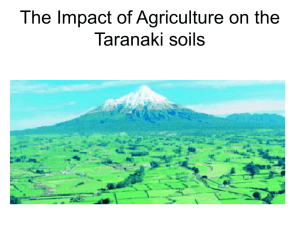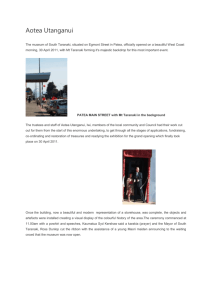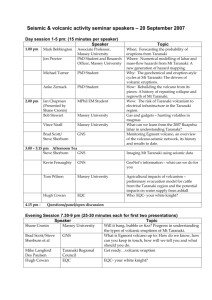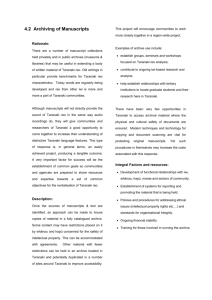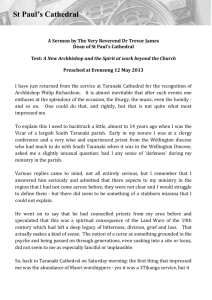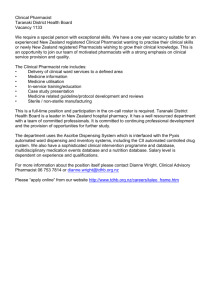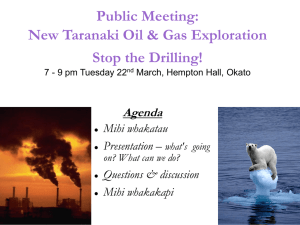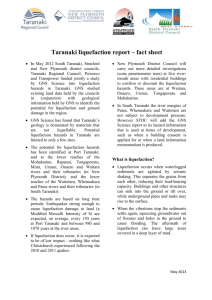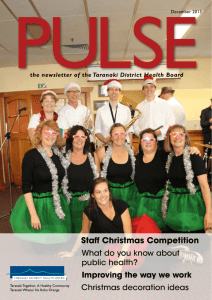Wordlist / Dictionary
advertisement
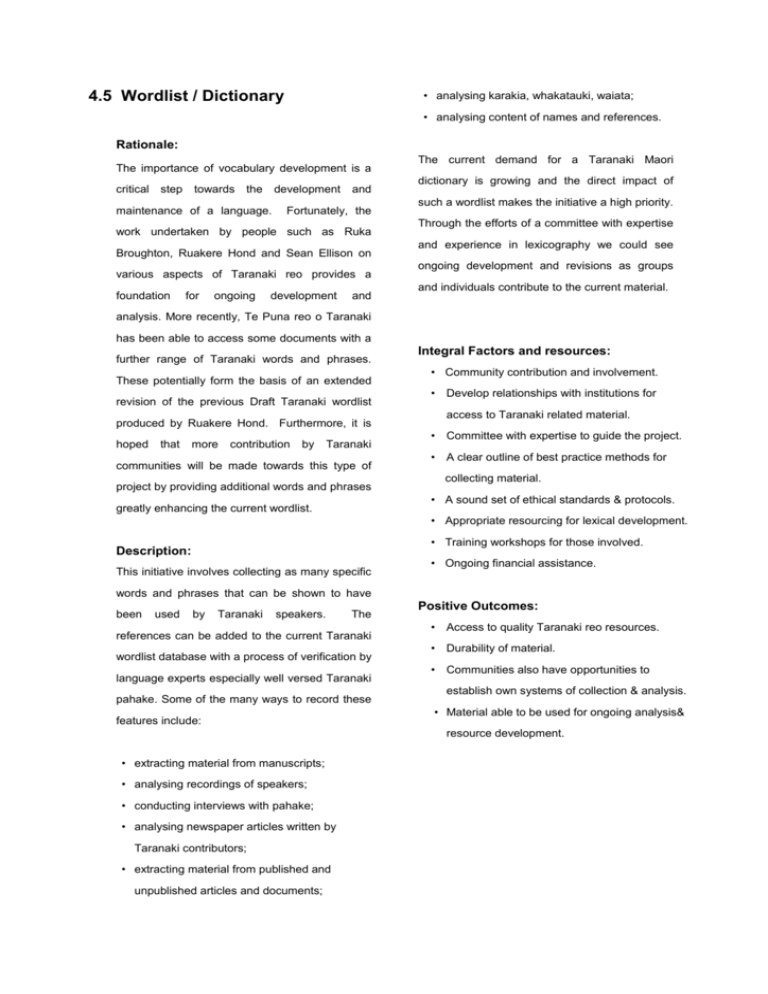
• analysing karakia, whakatauki, waiata; 4.5 Wordlist / Dictionary • analysing content of names and references. Rationale: The importance of vocabulary development is a critical step towards the development maintenance of a language. and Fortunately, the work undertaken by people such as Ruka Broughton, Ruakere Hond and Sean Ellison on various aspects of Taranaki reo provides a foundation for ongoing development and The current demand for a Taranaki Maori dictionary is growing and the direct impact of such a wordlist makes the initiative a high priority. Through the efforts of a committee with expertise and experience in lexicography we could see ongoing development and revisions as groups and individuals contribute to the current material. analysis. More recently, Te Puna reo o Taranaki has been able to access some documents with a further range of Taranaki words and phrases. These potentially form the basis of an extended revision of the previous Draft Taranaki wordlist produced by Ruakere Hond. Furthermore, it is hoped that more contribution by Taranaki communities will be made towards this type of project by providing additional words and phrases Integral Factors and resources: • Community contribution and involvement. • Develop relationships with institutions for access to Taranaki related material. • Committee with expertise to guide the project. • A clear outline of best practice methods for collecting material. • A sound set of ethical standards & protocols. greatly enhancing the current wordlist. • Appropriate resourcing for lexical development. • Training workshops for those involved. Description: This initiative involves collecting as many specific • Ongoing financial assistance. words and phrases that can be shown to have been used by Taranaki speakers. The references can be added to the current Taranaki wordlist database with a process of verification by language experts especially well versed Taranaki pahake. Some of the many ways to record these features include: Positive Outcomes: • Access to quality Taranaki reo resources. • Durability of material. • Communities also have opportunities to establish own systems of collection & analysis. • Material able to be used for ongoing analysis& resource development. • extracting material from manuscripts; • analysing recordings of speakers; • conducting interviews with pahake; • analysing newspaper articles written by Taranaki contributors; • extracting material from published and unpublished articles and documents; Possible risks: • Negative reaction towards the open access to local information. • Poor access to sufficient financial support. • Lack of available expertise to guide project. • Institutions not willing to enter into relationships. • Integrity/Accuracy of material is affected by many people being involved. • Intellectual rights are not respected Your Views:
